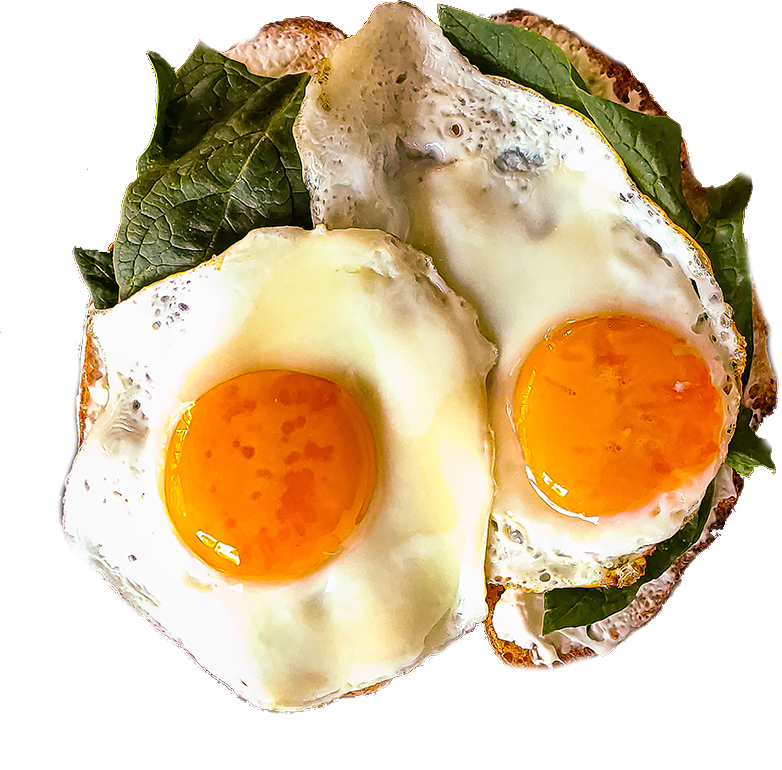I have eaten eggs almost all my life and I guess it’s one of the breakfast staples at your house too. Until recently, I thought I knew everything about nutrition from eggs. Now, my understanding on nutrition related to eggs is as scrambled as it can be.
First of all, the giant source of confusion is that majority of the research or studies assume all eggs are created equal. I am yet to find a research on egg nutrition that talks about this. Pasture raised, cage free hens that eat icky things like worms lay a very different egg than the ones raised in the confines of 1 sq feet space in a farm, eating GMO corn and soy (even processed dead chickens), and injected with all kinds of antibiotics and vaccines. The latter produce eggs that have very high pro-inflammatory unbalanced 574 mg of Omega 6 compared to only 37 mg of Omega 3. If you ate this egg everyday for breakfast, it is certain to contribute to chronic inflammation over a period of time further leading into insulin resistance and obesity.

Baryard eggs, however, do contain some very important nutrients such as Choline, a brain food and Lutein and Zeaxanthin, anti-oxidants that help in preventing vision degradation with age. These are in addition to high quality of other nutrients like Vitamin A, Vitamin D, phosphorous, iron, zinc etc.
What about fat and cholesterol? A number of nutritionists will ask adults to avoid egg yolks because it contains high levels of cholesterol but research indicates that just because there is dietary cholesterol in the yolk, does not necessarily mean it converts into a proportional amount of cholesterol in your blood.
That’s the issue. The science of nutrition, once again, seems as mysterious as dark side of the moon.
There are at least hundreds of sources of facts related to eggs that conflict each other. On one end is the 117 years old lady from Italy who attributes her long health to eating 3 eggs daily, the other end is latest research on effect of all kinds of animal protein to inflammation, auto-immune diseases and cancer. Just like everything else in the world of nutrition research, the facts are not that easy to come by in presence of conflicts of interest in the giant food industry. If you were to search for reports/research on the web, it is littered with one conflicting report after another and you start wondering why?
I started looking at these a long time back and I thought may be the good idea will be to understand which report talks about what and find out who is the organization behind it? Is there a conflict of interest. There are thousands of reports, articles, clinical trials and I’d need an army of people to sift through them but I did manage to find some patterns.
These are some papers that recommend eggs:
- Effects of eggs on plasma lipoproteins in healthy populations.
Department of Nutritional Sciences, The University of Connecticut
Trust factor: One company common to a huge number of clinical trials/research published by the common author, Maria Fernandez is guess what? They are all funded by the Egg Nutrition Center - Eggs – Nutrition source
Harvard school of public health
Trust factors: Though the article itself is somewhat balanced, the part that makes the claims untrustworthy is in the references (US Department of health, USDA, Maria Fernandez (indirectly funded by eggs nutrition center) - Dietary Cholesterol from Eggs Increases Plasma HDL Cholesterol in Overweight Men Consuming a Carbohydrate-Restricted Diet
Journal of nutrition
Trust factors: Funded by Eggs nutrition center
Opponents of eggs:
- Physicians committee for responsible medicine
Trust factors: Contrary to what the name implies, it has less than 4% members are actual physicians and is primarily an animal (PETA funds $1.3M) rights activist group. Not sure we can trust their unsubstantiated writings. - Consumption of eggs with meals increases the susceptibility of human plasma and low-density lipoprotein to lipid peroxidation.
Lipid Research Laboratory, Rambam Medical Center, Haifa, Israel.
Trust factors: High, No industry affiliations found
If you allow me to add further to this confusion, depending on who you ask, you will get a different answer about egg white versus egg yolks. Other than the obvious color and taste differences, these two are very different nutritionally. Both of these get credit for quality (animal) protein, but majority of nutrition in eggs is in the yolk.
Bottom Line: My learning so far from all the research is that I buy quality barnyard eggs, consume 2-3 eggs a week and do not throw away the yolk and do not worry about the cholesterol.
But if you decide to stay away from all this confusion, here is a quick reference on what you can use in place of eggs in a recipe. One egg is roughly equivalent to these vegan alternatives for achieving similar consistency.
| ¼ cup silken tofu blended | ½ mashed banana |
| ¼ cup applesauce or pureed fruit | ½ cup soy or rice yogurt |
| 1 tbsp ground flaxseed meal + 3 tbsp. water | 2 tbsp potato starch, cornstarch, or arrowroot |
| ¼ cup mashed white potatoes or sweet potatoes | ¼ cup cooked oats |
